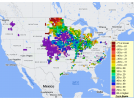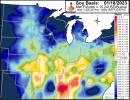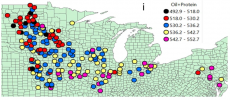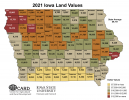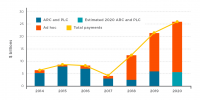HawkGold
Well-Known Member
Land available for sale is at historical lows. Supply/demand. No supply and extra cash in part due to prices and in part due to Trup extending social welfare to farmers. Biggest issues...lack of sales due to tax law changes over the years favoring the existing owners. Look at the FED exemptions on estate taxes. Some due to Iowa laws making it hard to collect at risk debts on farmers by banks. IL banks won't lend to Iowa farmers for that reason.False. It’s high prices.
Capital gains effect would be so minuscule as to be statistical noise.
When you’re talking $4 million dollars to buy a quarter section of land, no one without either already having a ton of cash on hand, or enough collateral to get cheap loans, can buy anything.
Capital gains doesn’t have shit to do with deterrence on that kind of money.
Where are you coming up with this stuff? Is Illinois in some kind of time warp?
LASTLY IL property taxes have exploded due to a number of reasons but in part because IL is a tax outflow state and Iowa is a tax inflow state.
Last edited:

